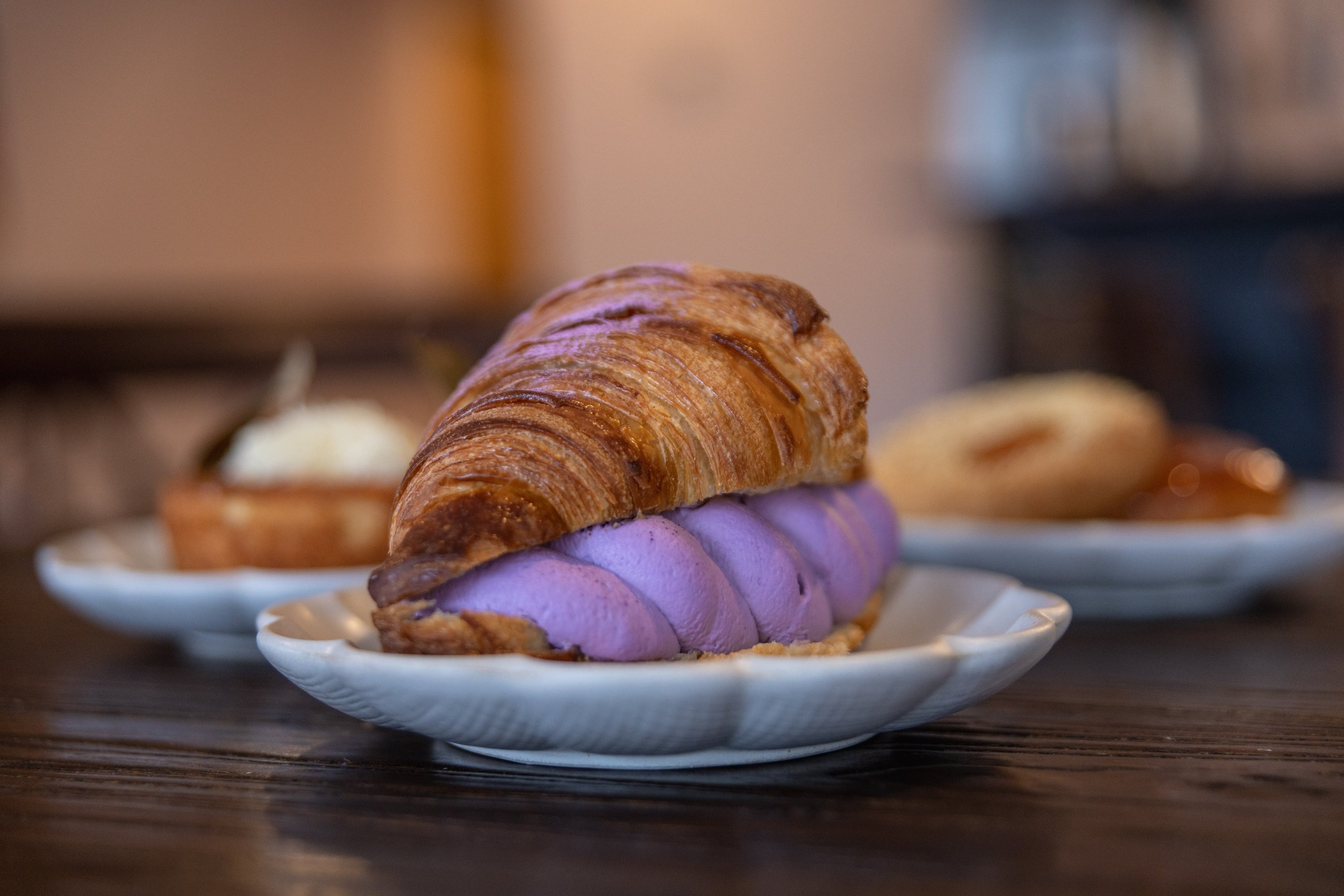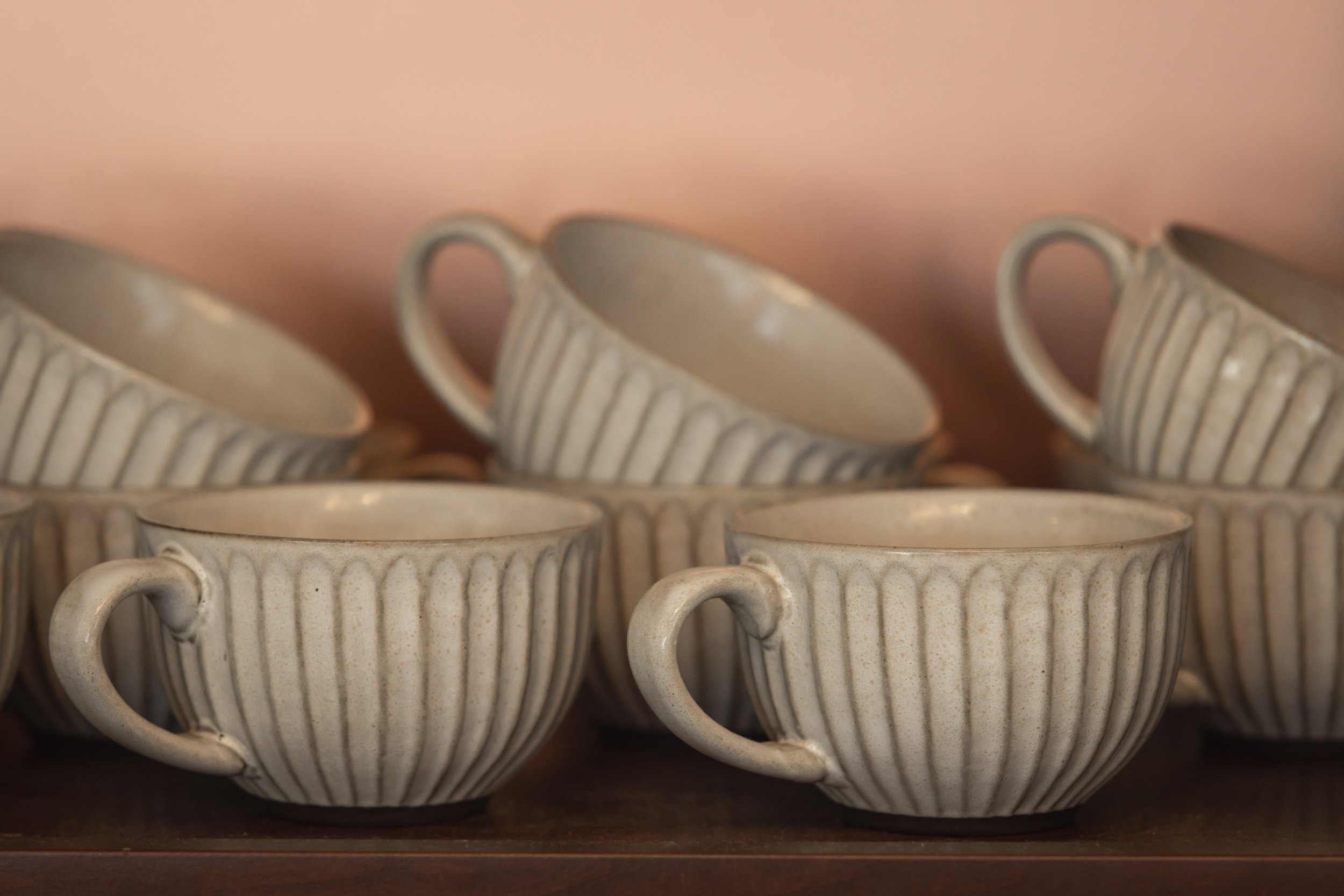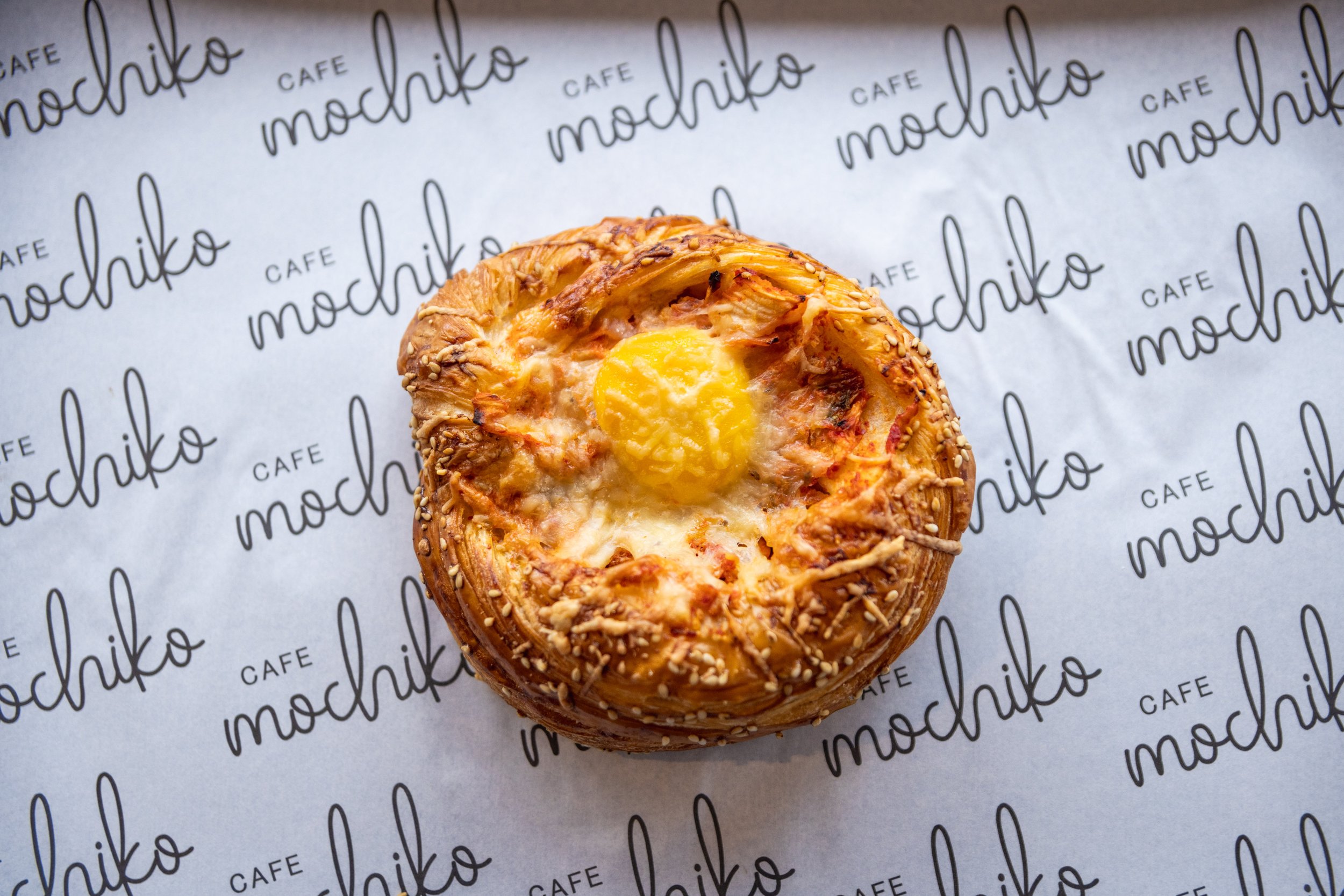Elaine Townsend of Cafe Mochiko on Making Connections through Food
Growing up in Hong Kong, visiting bakeries every day for bread or pastries for breakfast was a big part of my life. It was something I dearly missed when I moved to the United States. I had a hard time finding creative pastries until roughly two years ago when my roommate brought home some ube halaya croissants from Cafe Mochiko. Since then, I have witnessed how the business and its reputation grew.
As a pastry-lover and cafe-explorer, I was over the moon when I found out Mochiko opened up its own brick-and-mortar cafe on Madison Rd. I visited the sunlit cafe on a chilly fall morning. As I was sipping my hojicha milk tea, it felt like home. That was the moment I decided to chat with the cafe owners.
From her childhood stories to getting a physical space for Cafe Mochiko during COVID time, co-founder and Chef Elaine Townsend shared with us her journey of finding herself and her connection with communities through cooking and food.
Interview by Janet Chu. Photography by Angie Lipscomb.
Let's start by telling us about your upbringing and how you got into cooking.
My parents came to the states in the mid to late ‘80s. I was born in Southern California, in the San Gabriel Valley area, which is close to Los Angeles. I lived in that area for most of my childhood. Growing up, I was always in the kitchen helping my mom, my aunt, or my grandma. It ended up being something that I really loved and I wanted to turn that into a career.
I went to culinary school out of high school, and I worked for a couple of hotels. I eventually moved to the Bay Area and ran the pastry program at a hotel. That's where I met my fiancée. We were there for a couple of years before we moved to Chicago, where we made a little bit of a name for ourselves. Then eventually, we came back to Cincinnati, where his family is, and decided to start our own project.
You mentioned on the website that Cafe Mochiko "became [your] love letter to [your] experience as an Asian American growing up in two different worlds." Tell us more about how Mochiko came into life and its importance to you.
Yeah, I think that it's very common amongst not just Asian Americans but people who have immigrant parents to feel a little in between. I didn't know this was common back then. It's pretty isolating. When I was a kid, I didn't speak the same language as my parents do. They also spoke English, but my aunts, uncles, and the rest of my extended family would speak to each other in Tagalog. So there was a little bit of a barrier.
Food is the one thing that connects a lot of people without the use of language. That really is the best way for me to connect with my own heritage and family. Maybe I don't understand what everyone's saying, but I understand the culture and what it was like growing up in that culture.
Working my way through the food industry, I didn't necessarily know it was building up to this point. But being here at Cafe Mochiko and doing what we're doing feels more like me and myself, as opposed to just doing what someone else wants or doing someone else's menu. These food items make it feel like me on a plate or more like an extension of who I am.
That's amazing! What is your long-term vision for Mochiko?
We get that question a lot! I only want this place to get better. I don't foresee us franchising or anything like that. But I want to build up our team and get a stronger menu. I would eventually like to do a book, detailing our history and including some core recipes. I’d also like to travel with our team. There are so many opportunities out there, and especially with a small team, it's a bit more approachable. We want to treat everyone like we're a family because we see each other more often than anyone else, so building that closeness is kind of nice.
Is there a specific chef or someone that you follow that really influences your creations?
One of my longest-term mentors is Frederic Moreau. He was my chef when I was working at St. Regis in Laguna Beach. I worked with him for almost five years and learned a lot from him. Now he runs a place in Malaysia. All of his stuff was strictly French before, and now it's French and Asian. And I'm like, "Oh, my gosh, it's so great." But I would love to go over there and just pick his brain.
Where do you find inspiration?
I think a lot about ingredients that I had growing up, foods that I've eaten traveling to other places, and techniques that I've used working in other places. But mostly, we find something that's seasonal, like a product that's at its peak and built around that. That way, you get the best of the ingredients that you have. There's not a lot of manipulation going on.
What does it mean for you to invent new pastries or dishes and to share them with the community?
On the surface, it's fun. It gets people excited, but there is a lot of testing behind it. When I come up with something new—be it making dishes, pastries, or bread, I want them to taste good; I want them to make sense. A newbie chef's move would be putting everything that they think is cool together into a thing. But it doesn't make sense. So I need a plate that makes sense. Being able to share that with everyone else is nice. We get a lot of feedback that is generally really nice, so just getting people's opinions on my plates is pretty rewarding.
You have been a chef in three very different cities — Napa, Chicago, and Cincinnati. Do people in different cities look for different things in their food? And how do you cater to them?
The communities that I worked in those three cities were pretty different, so I would say yes. When I was in Napa, I was working for a high-end hotel. I think the expectations were a little bit different. And yes, they are in the Bay Area, and there's the big city vibe. But I also think that people who go to wine country all want very familiar things or nothing too adventurous because it's really about the wine.
Part of what I loved about Chicago is that it's such a working-class city. They love comfort food. Together with the visitors in Chicago, who look for something different, people there are generally very adventurous. That was a huge part of our menu development over there.
And then over here, I've noticed that a lot of people are looking for something that they can't find anywhere else. There are a few Asian bakeries here. But not a lot of all-day cafes where you can come in for pastries and coffee in the morning and then get dinner at night. I think the restaurant industry here in the city is booming, but it still has a long way to go. And I think people are looking for that sort of big city feel.
Is there an influential woman in your life?
My grandma, for sure. She raised seven kids as a single mom. She has lived a very Barbie-like lifestyle. She used to compete in beauty pageants. Then she was helping her husband run an electronics store back in the ‘80s, and she was a nurse for a long time. She owned her own food business, too. She's done a little bit of everything and somehow managed to come here with all of her kids. She's an amazing cook and a very hardy woman. She doesn't take bullshit from anyone, like most grandmas.
Community Mix is our monthly edition of content from a beautiful mix of Cincinnatians. Nominate folks for us to spotlight.
Women of Cincy is a certified 501(c)3. This belongs to you. Consider supporting future stories with a donation.






